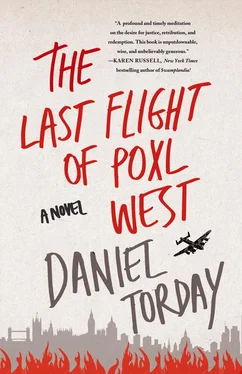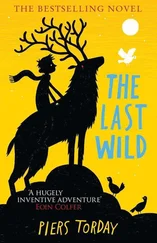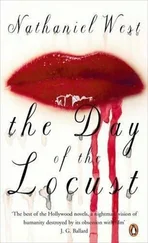For the past couple of years, he could do little more than hide out and visit museums. His publisher couldn’t take back the advance he’d received for Skylock, which was just enough to live quietly on Tenth Avenue while he tutored kids from prep schools in Westchester, kids referred by friends of his old colleagues in Boston.
But he was shunned. He had no one. It was as if his attempt at a foray into public life — into the public eye, into the fame that he’d long desired, let’s be honest — had negated his M.Phil, his having almost completed his Ph.D., his expertise on Shakespeare and Elizabethan drama. His ability to teach anyone anything. “Even my closest friends eventually cut me off,” he said.
He stopped talking. He just stared ahead. I did, too. Had he considered my parents his closest friends? They wouldn’t have thought so. Poxl hadn’t called and he hadn’t left a number where to reach him. And though I wasn’t yet emboldened enough to say it, wasn’t this one more lie? It was Poxl who had cut them off, his friends and family, us. Not the other way around. But I had to say something.
“I missed all those trips downtown,” I said. “I missed the opera. I even missed the Museum of Fine Arts. I know it wasn’t MoMA, but it was my introduction to the world.”
A woman passed between us and the Schiele painting. Poxl had begun to turn his shoulders so he was half-facing me. I’d done the same. I had one knee up on the bench.
“Why don’t you let me buy you lunch,” Poxl said. “Why don’t you let me take you to the Galerie St. Etienne, where we can see more Schieles, so many and we can lunch on the way.”
I looked around. I didn’t see my teacher anywhere, or any of my classmates. We weren’t to leave the permanent collection, on threat of a suspension from school. But here was Poxl West, sitting before me.
I told him I couldn’t leave the museum but that we could eat there at MoMA if he wanted.
We went off to the museum’s small café. He didn’t ask what I wanted, just bought me a cup of coffee. I didn’t drink coffee, so I let it sit in front of me.
“I was always going to bring you to New York City,” he said. He’d just sat down and started talking like he had when he saw me back in the gallery, like we hadn’t lost a beat. “I was going to finish out the tour, and then I was going to bring you down to the Galerie St. Etienne to really show you something.”
“I guess,” I said.
“You don’t believe me?” Poxl said.
“You never even sent the signed copies you’d promised you were going to send before the book came out.”
A tiny bead of sweat had formed at the tip of Poxl’s red, red nose. I sat looking at him. For how long had I wanted to ask him what he was thinking, not sending us those books? Me. For not sending me that book. It makes me as angry to think of it today as it did then. For how long had he been in my mind and then fled? And now here he was, the great man reduced to something smaller. My uncle, for all intents and purposes my grandfather, but diminished.
“I don’t know what to believe anymore, Poxl.”
“Oh, right,” he said. “That.” I put the stirrer he’d picked up at the front of the café into his coffee and turned it around in the cup. I didn’t even need to look under the table to see that his feet must again be crossed atop one another.
“When the magazine story first came out,” he said, “I was despondent. I hadn’t meant to hurt anyone. I hadn’t meant to lie or to steal anyone’s story. I sat down and I wrote a book, and people loved that book and read it and they wanted to hear me read from it. So I did what they wanted.”
“But you didn’t pilot S-Sugar.”
He said nothing.
“You didn’t drop bombs on Hamburg,” I said. “You didn’t fly sorties piloting that Lancaster.”
“I flew for the Royal Air Force!” Poxl said. Something had changed in his face again. I could see now that the tips of both of his shoes were on either side of him, planted solidly on the floor. “I flew Tiger Moths, and I piloted RAF planes, training to be a Czech Jewish teenager attacking the Nazi nightmare!”
“But you didn’t,” I said.
“I did!” Poxl said. He said it too loudly; even in the din of MoMA’s café, families on either side of us looked up. A smartly dressed couple said something to each other in Italian, picked up their sandwiches, and moved away.
“So I didn’t fly that sortie I wrote about in the book,” Poxl said, quieter now. “So I didn’t enter that cloud over Lübeck. But I flew RAF planes, I trained on them. And if I hadn’t been injured, I might have flown that one, too.”
What was this now? Where just a minute before I’d been pushing him, not even able to get him to admit he’d forgotten to send me that signed copy of his book, I now saw that something in my understanding of him — of the world’s understanding of him — was shifting. I asked him what he meant. He’d made it up, having flown over Hamburg.
“I trained for the RAF, just as it says in the book,” Poxl said. “In my book. But then at the end of my training, I landed hard, went to the infirmary. I had been injured and I’d developed pleurisy, just like I wrote. Just like I told you. And no matter how many months I begged, they wouldn’t allow me back to my commission. I’d met Smith and Gallsworthy and some others during training, and I kept up with them when I could. I was sent south to a desk job. When the war ended, I kept begging, until they sent me to a commission at a refugee camp in Wunstorf.”
“Where you met Smith again?”
“Where I met Smith again, just as it said in the book.”
“Well, not just as it said,” I said.
“Smith had always given me a hard time in training, and he gave me a hard time when we saw each other again in Wunstorf. But over time we became friends. There we befriended as well a Czech Jew, a survivor. He was a man my age, Herman Janowitz. Like me, he’d lost his whole family, had been sent from his home before the annexation and made it to London.
“We’d known many of the same people — he grew up in Prague, his parents lived not far from my grandmother Traute in the Zizkov district. What were the chances of this! Two Jews who’d escaped the Nazi aggression to come and fly with the RAF. But then there was that Czech wing I’d heard of, and another Polish wing. I wasn’t so unique after all, I came to see.
“I sat around for months and listened as Smith began to reveal a surprising sense of guilt at what he’d done in S-Sugar in the days after I was forced to resign my commission. And prompted by Smith’s story, Janowitz told quite a story of his own: There had been a night when he piloted a Lancaster over Hamburg himself. He’d flown into a thundercloud and somehow come out the other end, flown his sortie over Hamburg just the same. He told how many of his fellow kites went down, struck by lightning, or were forced to turn around, head back to base.
“Both of these compatriots of mine had been in the air over Hamburg. Flying sorties! Flying those very bombers I might have been trained to fly myself had it not been for that damn injury. They’d gone on to kill the very Nazis I’d hoped to kill — and then been plagued with a remorse that I came to empathize with myself. I started to realize as I listened to them what I’d done to Françoise, what I’d done in leaving so many of the people I loved then. I started to realize what we’d all done, simply by listening to their stories.”
Now Poxl quieted. It was toward the end of lunchtime, and the crowds moving through the café began to thin. It was the two of us sitting there, him Uncle Poxl telling stories as if we were back in Cabot’s, back in Boston. Only now he wasn’t reading from pages in front of him. None of this was prepared. It was just Poxl West talking.
Читать дальше












